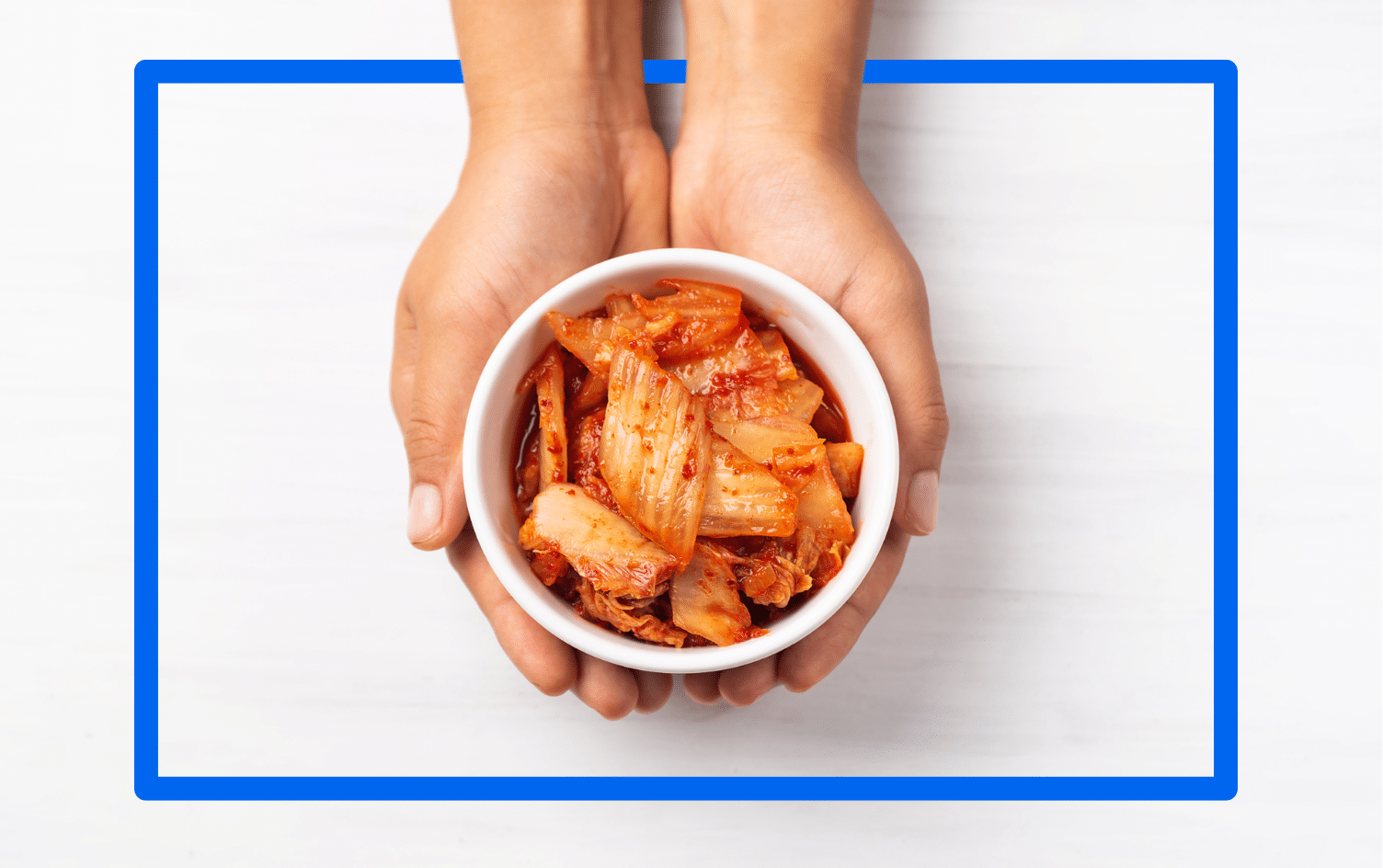Over the past few years, kimchi has become one of the trendier health foods. The traditional Korean dish made of fermented cabbage and/or radishes started popping up everywhere: on tacos, folded into fried rice, even in Bloody Marys.
People touted not only the flavor but also the health benefits. And now, there’s potentially another valid reason to eat more of it.
A new study in South Korea reported that kimchi can reduce the risk of obesity.
But before you go raiding the Asian aisle at the nearest grocery store, we talked to registered dietitian Katherine Basbaum, MS, RD, to find out whether or not the study is really accurate—and whether or not kimchi can prevent obesity.
What the study found
In the study, which was published in the medical journal BMJ Open, researchers evaluated over 115,000 Korean adults between the ages of 40 to 69. They found that of those surveyed, men who consumed one to three servings of cabbage kimchi per day had a lower risk of obesity compared to men who ate less than one serving per day.
Additionally, women in the same age group who ate one to three servings of radish kimchi per day experienced a lower risk of abdominal obesity than those who didn’t.
Benefits of kimchi
So what’s so special about kimchi? Katherine says it’s all about the lactic acid bacteria (LAB), which is a probiotic derived from the unique fermentation process.
Like many probiotics, LAB can boost your immune system, reduce inflammation, and improve your digestion. It can also potentially help prevent certain conditions, from colds and congestion to cancer and heart disease.
Katherine describes kimchi as a “flavorful, low calorie, high-fiber side dish.” However, she cautions that kimchi can be high in sodium, so be mindful of that if you’re watching your salt intake.
The final verdict
There’s no denying that kimchi can be part of a healthy diet. But as for whether or not it prevents obesity, that’s up for debate. Katherine pointed out some big flaws with this particular study.
- It was funded by grants from the World Institute of Kimchi (potential bias for 500, please).
- It was conducted on Korean adults, so we can’t really apply the findings to American adults as the population is completely different.
- The study only shows correlation, not causation. That means that eating more kimchi may be correlated to a reduced risk of obesity but it doesn’t cause it.
So if kimchi isn’t the answer, what is?
“Though there are unfortunately no specific foods that have been proven to play a significant role in lowering obesity risk, there are most definitely dietary strategies that can help,” Katherine says. (Like tracking your food… MyFitnessPal can help with that!)
Also read >> 10 Simple Changes That Could Help With Weight Loss
She recommends limiting “energy dense” foods, which are foods high in fat, sugar, and calories (think: anything processed). Instead, opt for “low energy dense” foods—like fruits, vegetables, and whole grains—that are high in water and/or fiber and will keep you fuller with fewer calories.
And as always, moderation is key. In the study conclusion, researchers reported that “excessive consumption suggests the potential for an increase in obesity prevalence.” Too much of a good thing isn’t always a good thing—even if you’re eating something good for you, like kimchi.







